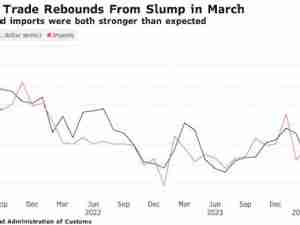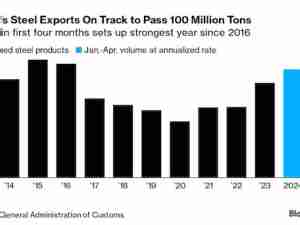Just as Britain’s pubs, restaurants and food retailers prepare to emerge from lockdown in the coming months—generating an expected surge in business—Brexit threatens to deal the beleaguered sector a fresh setback.
From April, the U.K. will start imposing new controls on food and drink coming from the European Union, the source of about a third of the country’s supply. The prospect is causing concern among executives, who fear any delays or disruption will leave them struggling to meet demand from consumers.
“It’s going to be like a Big Bang, a peak season of all peak seasons,” said Peter Ward, chief executive of the U.K. Warehousing Association.
When Britain left the single market on Dec. 31, exports were immediately subject to border checks—leading to hold-ups and extra costs for business and choking the flow of goods. The U.K. delayed imposing controls on imports, but the first of those ‘grace’ periods expires in April, threatening to inflict a second wave of disruption.
For the industry, the additional controls couldn’t come at a worse time. With more than 20% of the U.K. population now vaccinated, Prime Minister Boris Johnson is due to set out a road map for easing lockdown restrictions in coming weeks.
The hospitality industry is expecting to re-open in stages from late March, according to Shane Brennan, chief executive of the Cold Chain Federation, which represents specialists in frozen and chilled-storage logistics.

“The stakes are really high,” Brennan said in an interview. “It’s a recipe for quite significant disruption and problems.”
The scope for disruption has been highlighted by the effect Brexit has already had on exports from Britain. According to the Road Haulage Association, an industry lobby group, the volume of freight moving into the EU from the U.K. dropped by as much as 68% since Jan. 1—although the government has disputed that figure.
‘Car Crash’
Food has been one of the industries worst-hit by the post-Brexit trade deal, with exports ranging from fish to meat held up and spoiling because they lack the correct paperwork. Matt Legon, whose Norfolk-based Gnaw Chocolate generates about 1.5 million pounds ($2 million) of trade in the EU each year, has tried to make three deliveries so far in 2021: one was delayed, another ruined, and the third is yet to arrive.
“We are struggling to export anything at the moment,” Legon said by telephone. “To call it a car crash is an understatement.”
Brennan at the CCF said he is concerned that EU firms are unaware of the April deadline, when the U.K. will require extra paperwork on food products, and a later one in July, when all imports will require customs declarations and food must arrive through special border control posts.
He is also concerned the U.K. hasn’t finished building the infrastructure to handle the border checks. Ward said he is worried the requirement to obtain paper forms known as export health certificates will lead to delays.
The EU exports 3.2 million tons of fresh fruit and vegetables to the U.K. annually, about 40% of Britain’s demand, according to Freshfel, a trade association which represents the European fresh produce supply chain.
Trade Flow
The flow of this trade will “suffer significantly” in coming months due to the new controls, Philippe Binard, Freshfel’s general delegate, said in a statement.
While the government may be tempted to to delay the introduction of the new import checks on food or enforce them only lightly, there are limits to that approach, Brennan said.
“They’ll be looking to dial that down to the minimum they can get away with,” he said. But “World Trade Organization rules require them to implement their trading rules in full.”
Asked about the upcoming deadlines by a parliamentary committee on Tuesday, Emma Churchill, the civil servant in charge of Brexit border preparations, signaled the government is unlikely to delay introducing the new checks, saying there is “complete certainty” of the changes coming in April and July.
Penny Mordaunt, a minister at the Cabinet Office, said the government is focused “absolutely” on the new border checks. “The most challenging area is infrastructure,” she said. “That is a very challenging timetable.”









